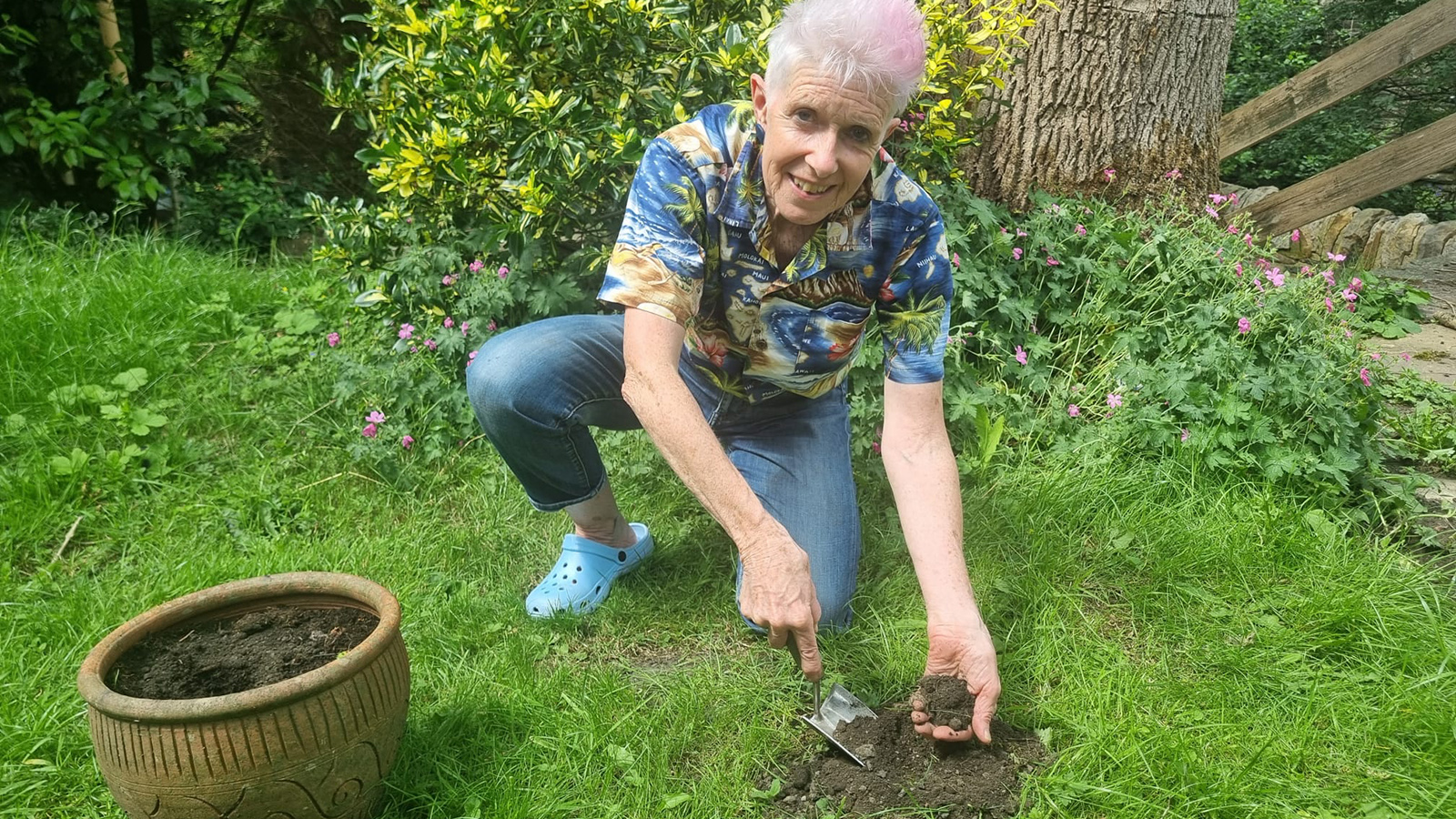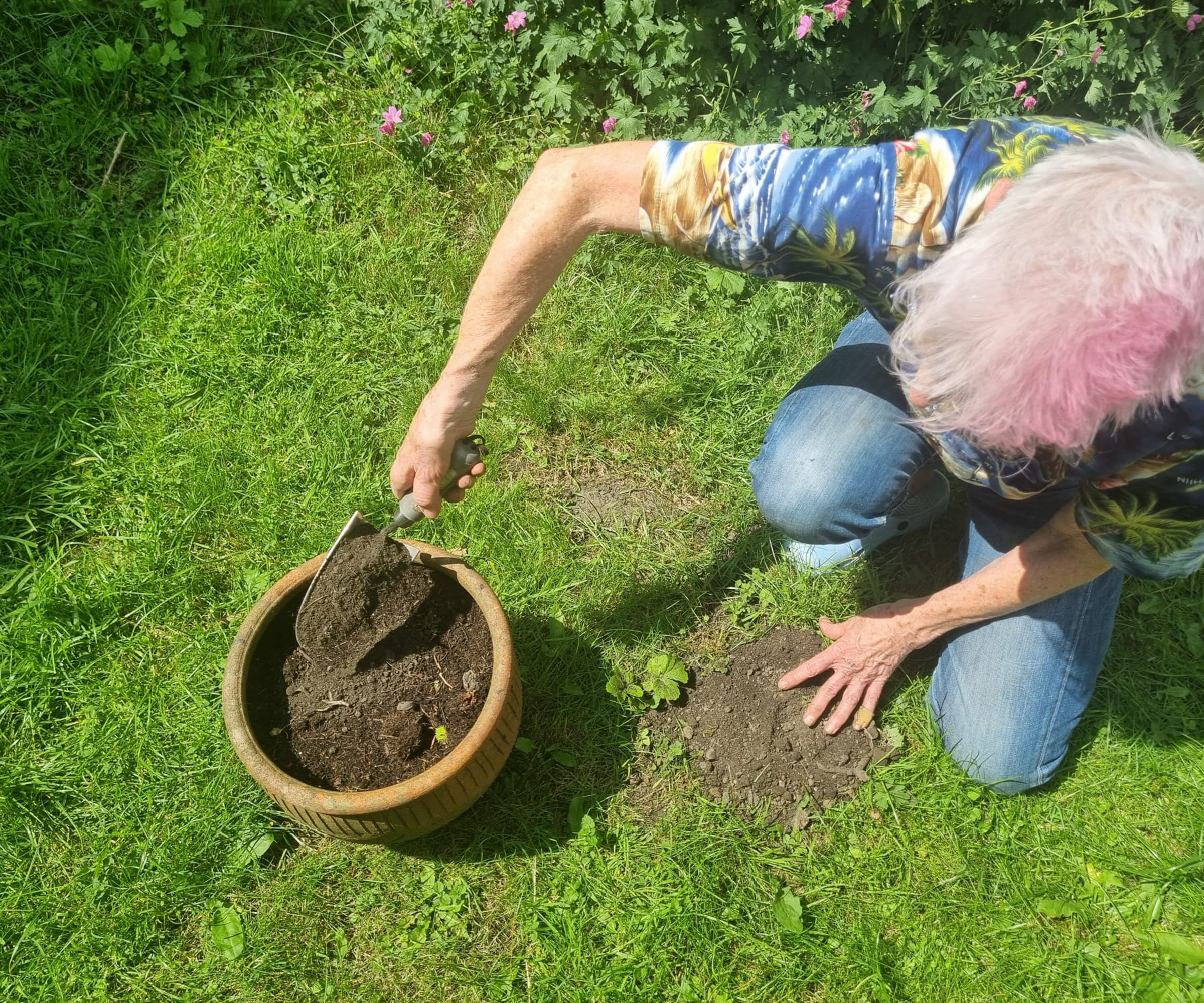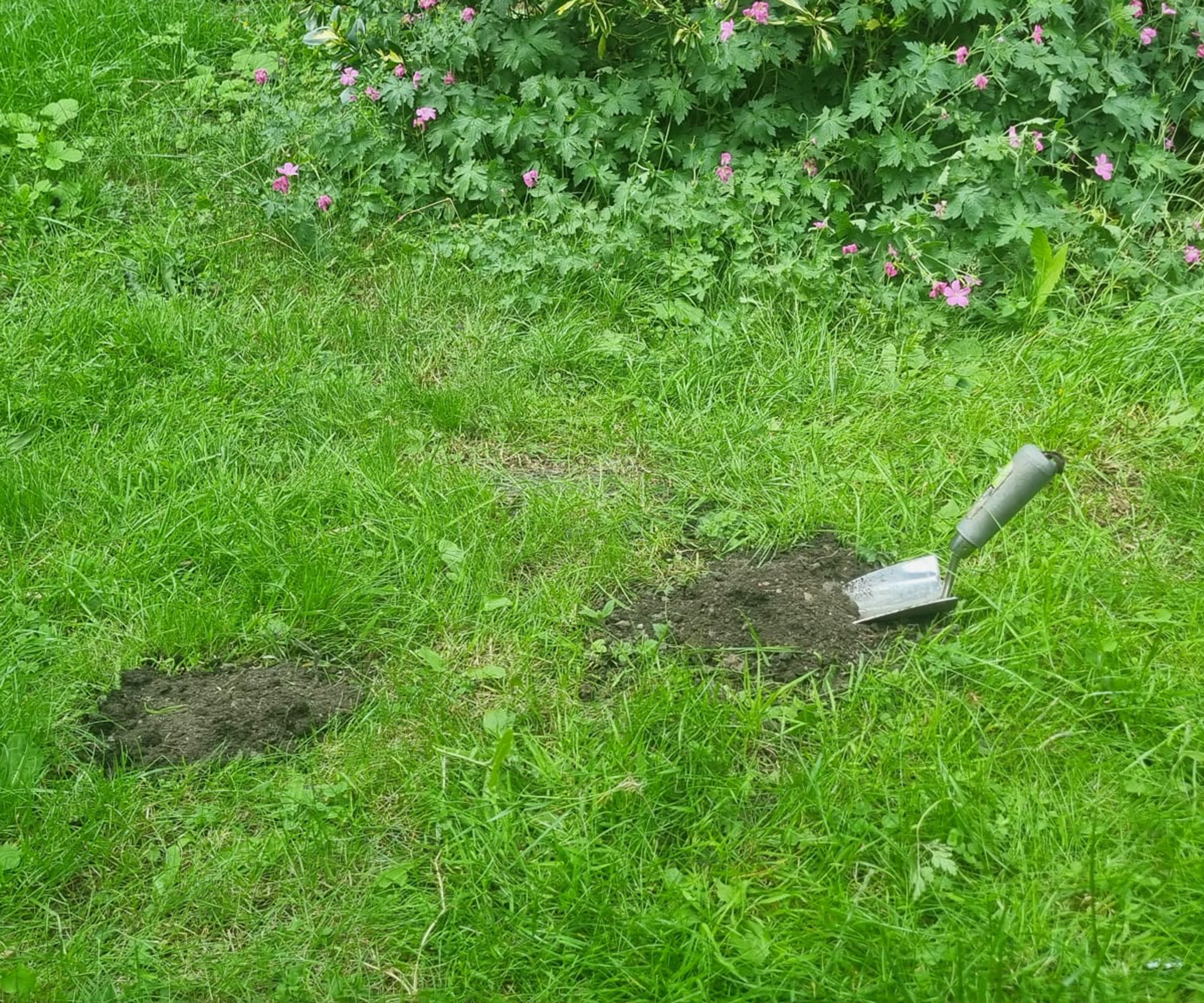My mum's gardening hack showed me the surprising benefits of moles in your lawn
Moles get a bad rap in the garden, but is it undeserved? Garden experts (and my mum) say yes

Bring your dream home to life with expert advice, how to guides and design inspiration. Sign up for our newsletter and get two free tickets to a Homebuilding & Renovating Show near you.
You are now subscribed
Your newsletter sign-up was successful
As a garden writer and editor, the view I've always taken on molehills is that, like other pests like garden slugs, people are keen to prevent them. But a recent visit to my mum's house made me do a complete 180 on how I see these little piles of soil. I happened to casually mention that she had a couple of mole hills on her lawn and her response wasn't what I expected.
Instead of an exasperated "oh no" she gave an extremely chipper, "oh good". This wouldn't be the first time my mum has suprised me with her optimism but I just had to know what she was so happy about.
I felt it warranted investigation and it turns out she's not alone in believing in the benefits of molehill soil. From the gardening experts I spoke to I discovered there are not only multiple uses for it, the presence of moles in your garden can actually improve the health of your lawns.
My mum's molehill hack
My mum told me she collects the soil from molehills to use in her pots as it's rich in nutrients. Gardening expert at Easy Garden Irrigation, Lucie Bradley corroborates her claim and explained to me that this is because it's a fine mix of the different soil levels.
To add to this, Lucie says that the fine, loose and crumbly texture of the soil in which molehills are formed as the moles dig their tunnels and push the soil to the surface is the perfect consistency for organic gardeners.
"The moles have done all the hard work of digging and breaking up the soil for you. Ideally, carefully remove the molehill soil as soon as you see it so that it is easy to handle and doesn’t get compacted by the weather," says Lucie.

Other uses for molehill soil
On further investigation, my mum was delighted to discover that hers wasn't the only eco-friendly garden method to make positive use of her visitors.
Bring your dream home to life with expert advice, how to guides and design inspiration. Sign up for our newsletter and get two free tickets to a Homebuilding & Renovating Show near you.
Here are some other uses below:
- To cover bare patches on your lawn and sow with grass seed
- Mixing 50:50 with mature compost or horticultural sand to create a good quality potting mix. Try this Horticultural Sand 20kg at Amazon
- Adding to compost and some potash as a seed medium
- To level out garden dips in the lawn
- To add to borders, flower beds and raised beds

Benefits of moles in your lawn
"Most gardeners don’t want mole activity in their gardens due to the aesthetic damage they can cause to a lawn, with molehills disturbing what could be a perfectly flat, well-cut and weed-free lawn," says Lucie Bradley.
"However, if you consider the natural positives a mole can bring to your garden and take advantage of the molehills by reusing the nutrient-rich soil they have provided for you due to their tunnelling activity, then others, like Teresa's mum, could begin to see their presence as a positive."
"Moles spend their whole lives digging tunnels as they forage for food and protect themselves from the weather. These tunnels improve both the drainage and aeration of the soil, by providing spaces for both rainfall to trickle through, to prevent waterlogged soil and allow air to penetrate which is essential for roots to be able to absorb water and nutrients for healthy plant growth," says Lucie.

The problems with moles in your garden
Aside from the aesthetic problems of molehills, it's important to note that there can be disadvantages caused by burrowing moles.
"They can disturb plant roots which could uproot small plants or leave roots damaged or cause them to dry out. In addition, although the tunnels improve aeration and drainage, moles main diet of earthworms is reducing the benefit those worms would provide in terms of soil health, both aeration, drainage and also the nutrient-rich casting they produce which enriches the soil," says Lucie Bradley.
"That said, they also help the gardener by eating some of the pests which can harm plants, including slugs and snails, grubs, beetles, termites, centipedes and millipedes," says Lucie.

Lucie has been working in the gardening industry for over 28 years and is a gardening expert at Easy Garden Irrigation.
If you're looking for other natural ways to improve the health of your garden, have a look at why experts recommend clover on your lawn as a way to boost nutrients without chemicals.
EDITOR’S NOTE: An earlier version of this article included a quote from a purported expert whose credentials we have not been able to verify. The quote has been removed. We regret this lapse in our verification process and have updated our internal protocols to reduce the risk of recurrence.

Teresa was part of a team that launched Easy Gardens in 2018 and worked as the Editor on this magazine. She has extensive experience writing and editing content on gardens and landscaping on brands such as Homes & Gardens, Country Homes & Interiors and Living Etc magazine. She has developed close working relationships with top landscape architects and leading industry experts, and has been exposed to an array of rich content and expertise.
In 2020 Teresa bought her first home. She and her partner worked alongside architects and builders to transform the downstairs area of her two bedroom Victorian house in north London into a usable space for her family. Along the way she learned the stresses, woes and joys of home renovation, and is now looking to her next project, landscaping the back garden.
